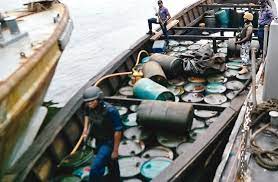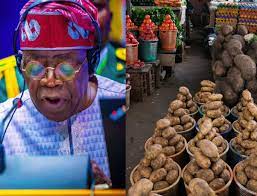Marketers eye fresh fuel price hike as crude hits $94…
Written by City Radio on September 18, 2023
The rise in the cost of crude oil, coupled with the depreciation of the naira against the United States dollar, might lead to a hike in the pump price of Premium Motor Spirit, popularly called petrol, oil marketers stated on Sunday.
It was also gathered that the sharp rise in crude oil price to about $94/barrel and the crisis around forex, had warranted a gradual increase in the amount being quietly spent as subsidy on petrol by the Federal Government.
Dealers in the downstream oil sector explained that the cost of crude oil and the exchange rate of the dollar accounted for over 80 per cent of the cost of PMS.
Brent crude, the global benchmark for oil, rose to $94/barrel on Sunday, the highest figure in 2023. Oil had started the year at about $82/barrel, dipped to $70/barrel in June, but traded above $92/barrel in the past week.
Also, it was reported on Thursday that the naira weakened to N950/dollar as forex scarcity worsened.
The report stated that the naira fell further against the dollar the preceding day (Wednesday), after closing at 950/$ at the parallel market.
Although the Federal Government and its Nigerian National Petroleum Company Limited had insisted that subsidy on petrol had ended, following the deregulation of the downstream oil sector, operators insisted on Sunday that the government was implementing quasi-subsidy.
They explained that with the latest rise in crude oil price, the cost of petrol was meant to increase, stressing that if the government insists on leaving the commodity at N617/litre, then subsidy on PMS had been returned quietly.
The marketers explained that in July when the cost of petrol was raised to N617/litre, crude oil traded around $82/barrel, while the the exchange rate was not as high as N950/$ at the parallel market.
The Nigerian Association of Road Transport Owners corroborated the concerns of marketers, as it stated that the price cap on petrol had made it tough for marketers to comply with the demands of NARTO with respect to increasing the cost of transportation for petrol.







 CityRadio 89.7FM
CityRadio 89.7FM